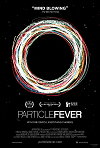Books and films are powerful resources that can significantly enhance World History students' understanding of modern technology, offering in-depth insights and engaging narratives that bring historical developments to life.
Books, particularly those focused on technological history, provide detailed accounts of inventions, innovations, and the people behind them. They delve into the socio-economic and cultural contexts in which these technologies emerged, helping students grasp the broader implications of technological advancements. Texts such as The Innovators by Walter Isaacson or The Second Machine Age by Erik Brynjolfsson and Andrew McAfee explore the evolution of digital technology and its impact on society. These books offer thorough explanations and analyses, enabling students to develop a nuanced understanding of technological progress.
Films, including documentaries and historical dramas, offer a visual and emotional connection to the subject matter. Documentaries like The Social Dilemma and The Internet's Own Boy provide contemporary insights into the digital age's challenges and innovations, making complex topics relatable and engaging. Historical dramas like The Imitation Game, which portrays the life of Alan Turing and the development of early computing, offer dramatized yet informative perspectives on key technological milestones.
By combining books and films in the curriculum, educators can cater to different learning styles and preferences. Books offer depth and detail, while films provide vivid, memorable portrayals of historical events and figures. Together, these resources enrich students' understanding of modern technology, illustrating its transformative impact on society and highlighting the human stories behind technological advancements.
|











